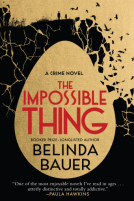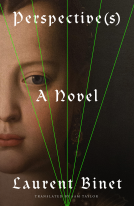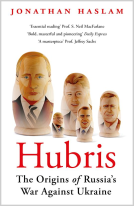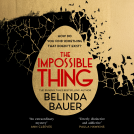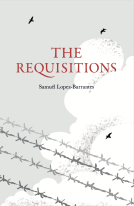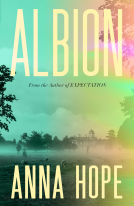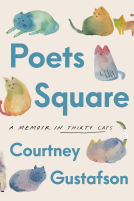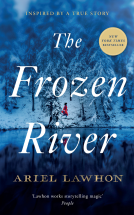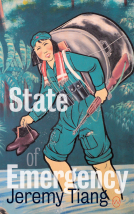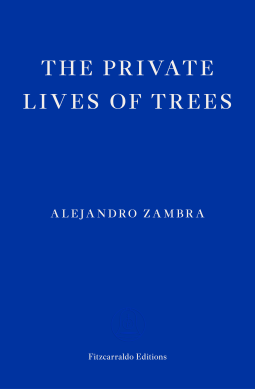
The Private Lives of Trees
by Alejandro Zambra, translated by Megan McDowell
This title was previously available on NetGalley and is now archived.
Send NetGalley books directly to your Kindle or Kindle app
1
To read on a Kindle or Kindle app, please add kindle@netgalley.com as an approved email address to receive files in your Amazon account. Click here for step-by-step instructions.
2
Also find your Kindle email address within your Amazon account, and enter it here.
Pub Date Feb 07 2023 | Archive Date Feb 09 2023
Talking about this book? Use #ThePrivateLivesofTrees #NetGalley. More hashtag tips!
Description
Verónica is late, and Julián is increasingly convinced she won’t ever come home. To pass the time, he improvises a story about trees to coax his stepdaughter, Daniela, to sleep. He has made a life as a literature professor, developing a novel about a man tending to a bonsai tree on the weekends. He is a narrator, an architect, a chronicler of other people’s stories. But as the night stretches on before him, and the hours pass with no sign of Verónica, Julián finds himself caught up in the slipstream of the story of his life – of their lives together. What combination of desire and coincidence led them here, to this very night? What will the future – – and possibly motherless – Daniela think of him and his stories? Why tell stories at all?
The second novel by acclaimed Chilean writer Alejandro Zambra, The Private Lives of Trees overflows with his signature wit and his gift for crafting short novels that manage to contain whole worlds.
For fans of: Jessica Au's Cold Enough for Snow, Patricia Lockwood's No One Is Talking About This, Elif Batuman's Either/Or
Advance Praise
‘There is no writer like Alejandro Zambra, no one as bold, as subtle, as funny.’
— Daniel Alarcón, author of At Night We Walk In Circles
‘Every beat and pattern of being alive becomes revelatory and bright when narrated by Alejandro Zambra. He is a modern wonder.’
— Rivka Galchen, author of Everyone Knows Your Mother is a Witch
‘The most talked-about writer to come out of Chile since Bolaño.’
— New York Times
Available Editions
| EDITION | Paperback |
| ISBN | 9781804270240 |
| PRICE | £10.99 (GBP) |
| PAGES | 96 |
Featured Reviews
I'll say first that this very short novella/ novel? makes me want to read more by this writer.
He certainly uses words sparingly but the whole is nevertheless interesting. The story, such as it is, starts with Julien waiting for his wife, Veronica to come home. As he waits he writes (or imagines the story) and when she returns the story will end. He tells a story that evolves into different stories - telling his stepdaughter bedtime stories about trees, imagining her adult life, imagining what will happen if Veronica never comes home.
I found myself (oddly as Daniela does) not wanting to rush through this book so I stopped every few pages to move around the room, do some housework, make a coffee. I'm not entirely sure why bit it seemed obvious that I shouldn't read this work as a story bit rather as a series of observations and imaginings. I'm sure I'm not explaining myself very well however it is a delight to read and I'd recommend it to readers who enjoy Auster (don't listen to Julien who doesn't read Auster) as it certainly has echoes of that style.
I'd definitely read more by Alejandro Zambra. His work intrigues me.
Thanks to Netgalley for the ARC.
 Liz B, Reviewer
Liz B, Reviewer
Such a gentle novel, one that can be devoured in a single evening. What is it about? Julian tells his 8 year old step-daughter, Daniela, a bedtime story while they wait for her mother, Veronica, to come home from her art class. His story is about trees who have been friends for years talking over their day. Julian is a teacher and one day a week a writer and while Daniela sleeps he remembers his pursuit of Veronica and his previous relationship. He imagines why Veronica has not returned, what might have befallen her. He imagines Daniela as an older child, a teenager, an adult. This book is about relationships, those people that touch our lives and have an impact - large or small. It is also about family - what sort of father will Julian be to Daniela - hopefully a better one than her real father. We all wait for Veronica because as Julian says - the book continues until she comes home. This is one of those books that we all need sometimes, a book to make us pause and breathe.
<b>Being there or not is the question</b>
We start with the trees who are solid, stationary and do not move much but then Zambra continues with us. Humans who do move, a lot, going in and out of each others lives, building families and leaving them, finding families and continuing them.
What will Julian do, will he be there? Zambra projects forward and backwards with this question. Why do some relationships survive and others do not? Will Julian be there for Daniela? Where is Veronica? Why should we care? I think I cared because it is a question we too must ask, will that person be there for me, will I be there for him, her, whoever. Why am I there for one person and not for the other? Good questions.
Excellently done. Another excellent Fitzcarraldo.
An ARC kindly provided by author/publishers via Netgalley.
Such a gentle novel, one that I happily devoured in a single evening. This book is about relationships, those people that touch our lives and have an impact - large or small. It is also about family - what sort of father will Julian be to Daniela - hopefully a better one than her real father. We all wait for Veronica because as Julian says - the book continues until she comes home. This is one of those books that we all need sometimes, a book to make us pause and breathe.
 Giles R, Reviewer
Giles R, Reviewer
I first read this book probably over a decade ago, not long after I first read Bonsai. At the time, Bonsai was one of the most revelatory books I had read, so minimalist and concise yet deeply rewarding. The Private Lives of Trees didn’t quite match the reading experience.
Going back to this short novel I was surprised at just how great it is. In the span of an evening while waiting for his wife to return, Julian ruminates on what has led to this point in his life and the future of his step daughter Daniela. The real strength of this story lies in Zambra’s use of third person narration, where he masterfully blurs the line between Julian’s imagination and Daniels’s actual future.
I enjoyed having the chance to revisit and reevaluate this novel and appreciate once again the genius of Alejandro Zambra.
Readers who liked this book also liked:
Samuél Lopez-Barrantes
General Fiction (Adult), Historical Fiction, Literary Fiction
Kelly and Kristina Mancaruso
General Fiction (Adult), Mystery & Thrillers, Nonfiction (Adult)
